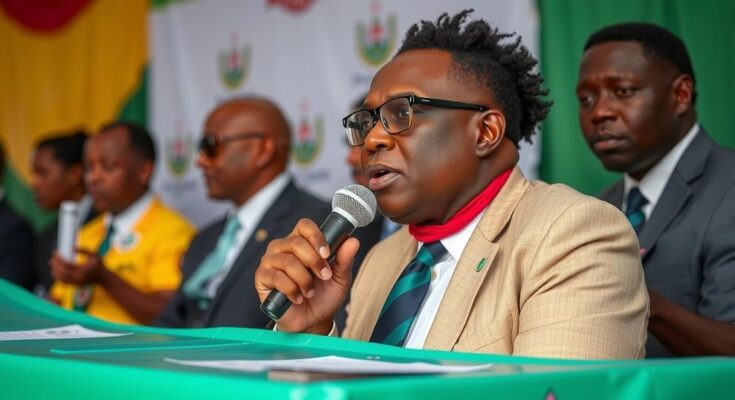Gabonese military leaders announced that a proposed new constitution was overwhelmingly supported by voters, with 91.8% affirming it in recent referendum results. The constitution outlines new presidential term limits and eligibility criteria, positioning the junta amidst scrutiny concerning potential authoritarianism as they prepare for the 2025 presidential election. Voter turnout was reported at 53.54%, and critiques highlight concerns over governance and the future of democracy in Gabon.
The military rulers of Gabon have reported that their proposed new constitution has been significantly approved by voters in a recent referendum. With provisional results indicating that 91.8% supported the new constitution, this outcome marks a pivotal moment for the oil-rich nation. An estimated 860,000 registered voters participated, with authorities advocating for turnout across various media platforms. Despite a voter turnout of 53.54%, lower than previously anticipated, the junta has framed the referendum as a pivotal step forward for Gabon. The new constitution stipulates a presidency limited to two seven-year terms, prohibits a prime minister, and restricts presidential candidates to those with exclusively Gabonese heritage. This provision would disqualify the former ruler Ali Bongo Ondimba and his descendants. Brice Oligui Nguema, the current transitional president, portrayed the referendum as an opportunity for transparency and national progress. Critics argue that the constitution is crafted to entrench power for the ruling authority, raising concerns about potential authoritarianism in the future. Observations of the election process emphasized the sentiment of trust in the system, yet the populace remains vigilant about the future of democracy in Gabon.
The referendum occurs in the context of a military coup that displaced Ali Bongo Ondimba’s regime in August 2023. Bongo had ruled for 14 years, following in his father’s footsteps, with both administrations characterized by allegations of corruption and governance issues. The military junta is advocating a new constitutional framework intended to reshape leadership governance in Gabon, while securing their transitional power leads many to speculate on the implications for future elections. The involvement of the populace through the referendum reflects broader concerns about governance, national identity, and the military’s role in politics as it pertains to democratic structures in Gabon.
In summary, Gabon’s military rulers claim a significant victory in the recent constitutional referendum, with overwhelming support from voters indicated by provisional results. The newly proposed constitution could redefine presidential power and limit succession based on Gabonese heritage. However, widespread skepticism exists regarding the potential for authoritarian rule under the military junta, prompting ongoing discussions about the country’s democratic future and governance practices. The reported voter turnout and collected sentiments regarding the governance also suggest a populace eager for change amidst concerns about job security and economic stability.
Original Source: www.tiogapublishing.com




